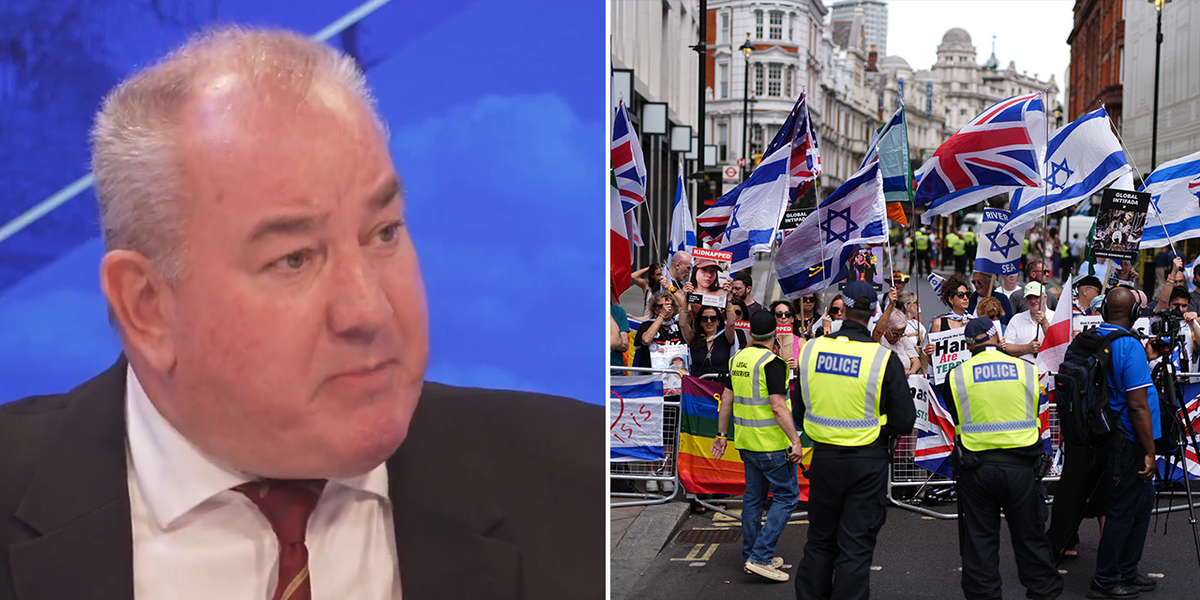The Controversy Surrounding Pro-Palestine Demonstrations: Insights from Former Met Police Detective Mike Neville
In recent months, London has witnessed a surge in pro-Palestine demonstrations, particularly following Israel’s military response to Hamas’s terror attack on October 7. These protests have sparked significant debate regarding public safety, police resource allocation, and the broader implications for community relations in the capital. Former Metropolitan Police detective Mike Neville has emerged as a vocal critic of the police’s handling of these demonstrations, raising concerns about their impact on the Jewish community and the effectiveness of law enforcement.
A Call for Reflection on Police Practices
Mike Neville, who spent years serving in the Metropolitan Police, has publicly criticized the agency he once worked for, particularly after it acknowledged making "mistakes" in managing the pro-Palestine protests. Speaking on GB News, Neville expressed his discontent with the current state of policing in London, arguing that the police’s approach has led to a climate where Jewish individuals feel increasingly uncomfortable visiting the city. He stated, “Many of my Jewish friends will absolutely not come to inner London. What have we become?”
Neville’s comments highlight a growing concern that the police’s operational decisions may be influenced by biases regarding the nature of the protests. He pointed out that while officers claim to be committed to diversity, they often fail to embrace a diversity of thought. This perceived bias, he argues, is reflected in how the police manage different groups and protests, leading to a sense of injustice among various communities.
The Financial Burden of Protests
The financial implications of the ongoing protests cannot be overlooked. A recent report by Policy Exchange revealed that the pro-Palestine demonstrations in London have cost the Metropolitan Police a staggering £42.9 million between October and June. This figure underscores the significant strain that these events have placed on police resources, with nearly 52,000 shifts from Met officers and an additional 10,000 shifts from other forces being diverted to manage the protests.
Neville emphasized that this diversion of police resources has real-world consequences for the public. He pointed out that while the protests may be important to some, the majority of Londoners are more concerned about issues like burglary and theft. “Most people don’t care about Gaza. They do care about when the house is burgled,” he stated, highlighting the need for the police to prioritize their efforts in a way that addresses the immediate concerns of the community.
The Impact on Community Relations
The ongoing protests and the police’s response have raised questions about community relations in London, particularly between Jewish and Muslim communities. Neville’s remarks suggest that the current handling of protests may be exacerbating tensions rather than fostering understanding. He argued that the police should take a more balanced approach, stating, “Someone should say, ‘look, you’ve had your protests, there’s not much we can do about it. It’s a matter between Israel and Middle Eastern countries.’”
This perspective calls for a reevaluation of how protests are policed and the broader implications for community cohesion. As tensions rise, it becomes increasingly important for law enforcement to navigate these complex dynamics with sensitivity and fairness.
The Need for Policy Reform
Former Met commissioner Lord Hogan-Howe QPM, who endorsed the Policy Exchange report, echoed Neville’s concerns about the challenges of policing protests in recent years. He emphasized the need for the government to rebalance the legal framework to better serve ordinary citizens going about their daily lives. The call for policy reform is a crucial aspect of the ongoing discourse surrounding public demonstrations and their impact on urban life.
Conclusion
The pro-Palestine demonstrations in London have sparked a multifaceted debate about policing, community relations, and public safety. Mike Neville’s criticisms of the Metropolitan Police’s handling of these protests shed light on the complexities of managing public dissent in a diverse city. As the situation continues to evolve, it is essential for all stakeholders—law enforcement, community leaders, and policymakers—to engage in constructive dialogue aimed at fostering understanding and ensuring the safety and comfort of all Londoners. The path forward will require careful consideration of the needs and concerns of various communities, as well as a commitment to effective and equitable policing practices.
